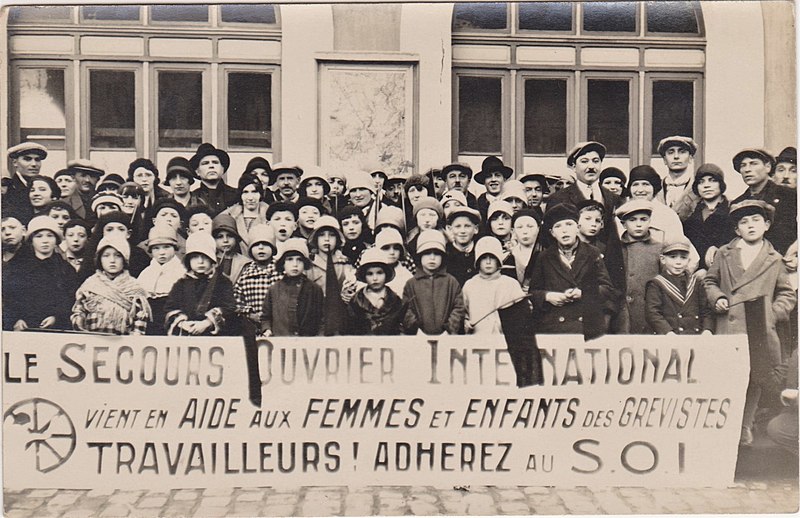
Labor and Welfare State
History of labor encompasses huge swath of topics. Our starting point is : the issue of labor is one of the most fundamental social relationships. As such, it organizes and has implications for societies well beyond its economic dimension. Against the standard vision from economists that defines labor in relation with trade and markets, historical analysis demonstrates that labor interactions are always an issue of balance of power, that is only poorly reflected in wages. In fact, these power relations define primary social inequality that cannot be corrected by income transfer nor are fully define in the economic world (e.g., and firstly, in the very definition of what is socially considered as labor). Labor relations cannot be separated from welfare systems in their broadest definition, with or without implications of the state, unemployment benefits, pension systems, health insurance, education and training, and housing. Our aim is to analyze in all their diversity and complexity historical systems of labor and welfare.
Demography
The renewed interest for demographic phenomenon in the long run, e.g. on migration, has mainly produced ahistorical analyses, assuming the study of examples of economic behavior invariant in time and space. Our research, on the contrary, aims at studying simultaneously demographic context, social practices, and historical evolutions. They rely on many different sources –micro data on individual trajectories, genealogical reconstitution, contextual data at various scale, conscription data, etc.– to analyze the demographic consequences of economic development in the 19th and 20th centuries.
Development
Research works are dedicated to the historical study of economic and social development in non-Western regions, in particular Africa. They analyze the political economy of European colonialism and the decolonization processes, both on the side of the colonized societies and on the side of the metropoles. They are interested in state building and public finance, capital accumulation and firms’ strategies, political and economic networks, from precolonial times to present.
Research contracts and partneships: ANR AFRISTORY
Inequalities and social mobility
Inequalities and social mobility. Research in this field has French and international dimensions. In the case of France, the work carried out is mostly based on data from the French estate archives since the beginning of the 19th century, which provides a unique perspective on the analysis of individual trajectories and on the evolution of the concentration of wealth over two centuries. Beyond the French case, research on inequalities is part of the World Inequality Database (WID.world) and a vast international research programme on the historical evolution of income and wealth inequalities, covering Latin America, Africa and Asia in particular.
Research contracts and partneships: World Inequality Database . ERC Synergy: Distributional National Accounts
Economic history and environment
Research in this field focuses on environmental transformations and pollution over time through the prism of economic and social history. In particular, it involves using historical methods and data on income and wealth inequalities to compare with the environmental accounts of nations (in particular on greenhouse gas emissions and energy), in order to contribute to the development of a global social history of the environment.
Money, credit and finance
Research in this area covers both the microeconomic dimensions of the financing of companies and macroeconomic issues (money, growth, fluctuations, inequalities). We study the financial system in this perspective, as a historically situated set of institutions, the distribution of financial assets and the practices of actors. It involves a highly contextualised approach to the financial practices of both financial actors (banks, notaries, stockbrokers) and users of the financial system (savers, capitalists, entrepreneurs and businesses, the State, central banks and local authorities). To go beyond individual cases, special attention is devoted to building large databases: traceable from sources, documented, updatable and accessible to all (DEFIH & EURHISFIRM projects), on a French and European scale. The main sources are: notarial archives, those of the Banque de France, the Paris Stock Exchange, the Ministry of Finance and major banks, those of the commercial courts (for business start-ups and bankruptcies), and various newspapers and financial directories used systematically. The methods used include case studies, network analysis, econometrics and narrative methods.
Research contracts and partneships: DFIH-Data for financial history, ANR SYSRI 30 (systemic financial risk in the 1930s), HBDEX (Artificial intelligence tools for digitizing financial data), COLECOPOL (political economy of businesses in the colonies), ERC European infrastructure grant H2020 EURHISFIRM Long term data for Europe
